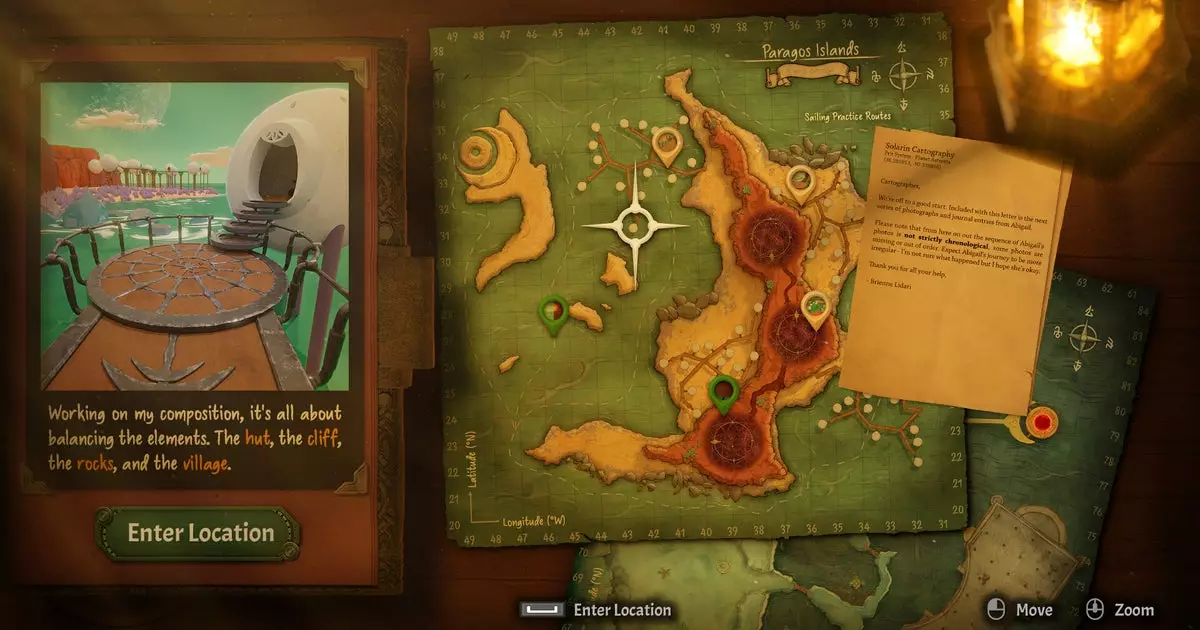Locator is not just a game; it’s an immersive journey for those enamored with the mysteries of an alien landscape and the intricate art of cartography. Serving as a detective puzzler, players are cast in the role of a galactic cartographer on a crucial mission: to locate a missing archaeologist, Abigail Lidari, on a strange extraterrestrial planet. By drawing inspiration from familiar titles like Geoguessr while integrating a detective-style narrative, Locator offers a unique blend of exploration and critical thinking that challenges players to connect the dots between scattered clues and environmental features.
As players delve into the game, they are presented with a compelling task of studying photo sets alongside notes plucked from Abigail’s intriguing diary. This interplay of visual and textual information encourages a hands-on approach to problem-solving. Locator encourages players not only to identify landmarks but to also assess them through a lens of empathy, stepping into Abigail’s shoes to understand her perspective and the story behind her journey. A notable aspect of the gameplay is its evolving complexity, reducing a straightforward identification process into a multifaceted puzzle where cognitive and emotional engagement is key.
Maps, though often taken for granted, serve as powerful metaphors in human communication and understanding. Locator deepens this relationship with cartography by incorporating the intriguing notion of ‘cartographer’s folly.’ This concept, referring to fictitious entries used by cartographers, echoes a philosophical reminder first articulated by Alfred Korzybski: “the map is not the territory.” As players navigate through the game, they are constantly reminded that interpretations of the alien world are subjective and often mediated through their personal insights and experiences, making it a profound exploration of knowledge and perception.
The game’s charm lies in its capacity to cultivate empathy for Abigail, who is known to us solely through the curated lens of her journey represented in both images and words. As players gather clues, they not only work with tangible resources but also engage with a narrative that urges them to contemplate the emotional landscape surrounding Abigail’s ordeal. The beautifully designed worlds, infused with elements like constellations and alien architecture, serve to enhance our understanding of her character and plight.
While Locator does not yet have a release date, it stands poised to leave a lasting impression on players who are drawn to immersive storytelling and thought-provoking gameplay. By marrying the themes of exploration, empathy, and the intricate dance between maps and reality, the game promises to be a refreshing addition to the genre. Enthusiasts of both detective puzzles and alien landscapes will find themselves eagerly awaiting the opportunity to embark on this interstellar adventure. As we anticipate its launch, Locator invites us to rediscover not only the joy of browsing uncharted territories but also the profound experiences woven into the quest for knowledge.


Leave a Reply